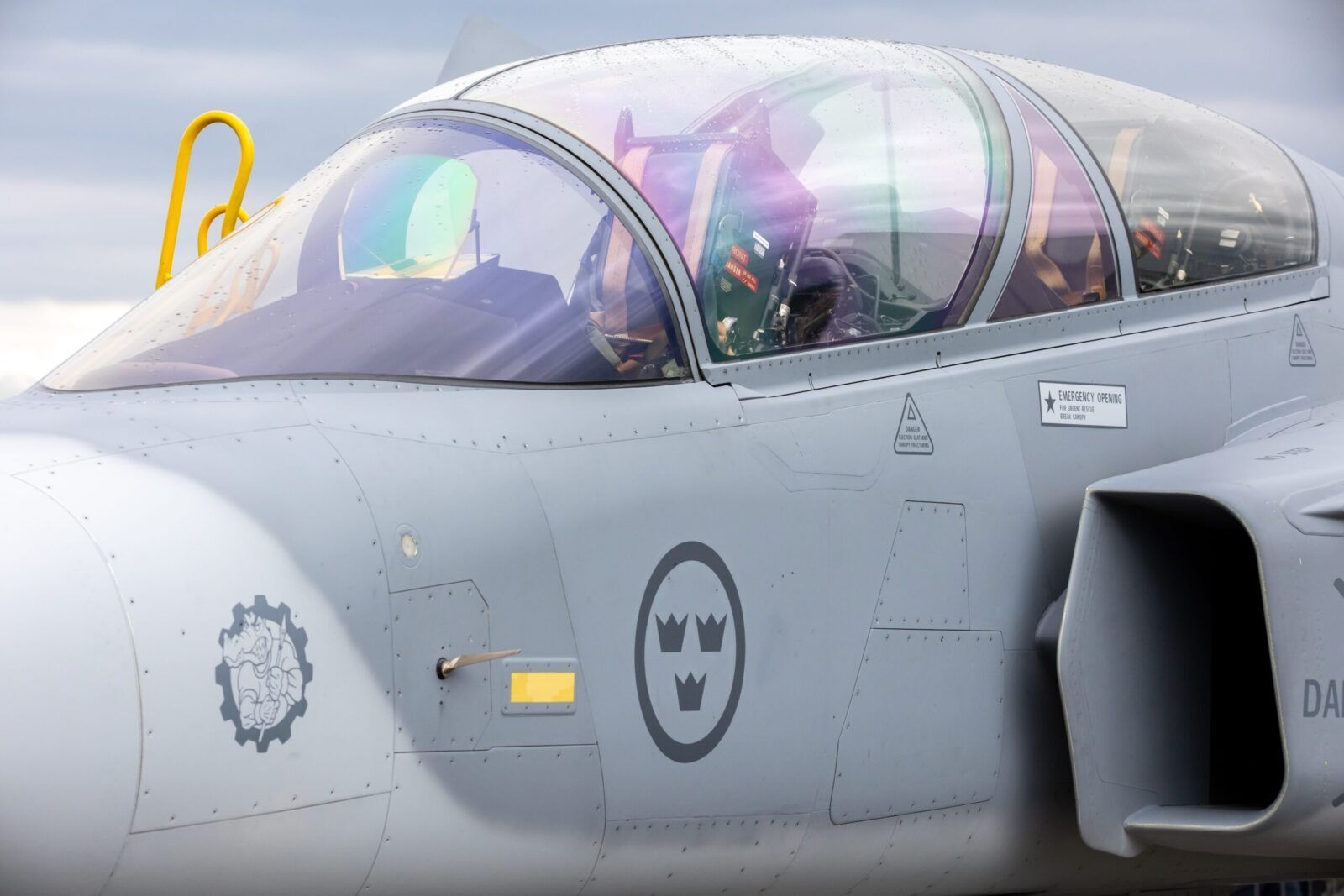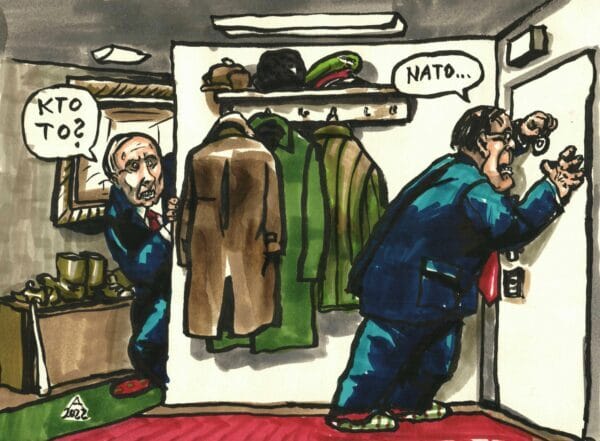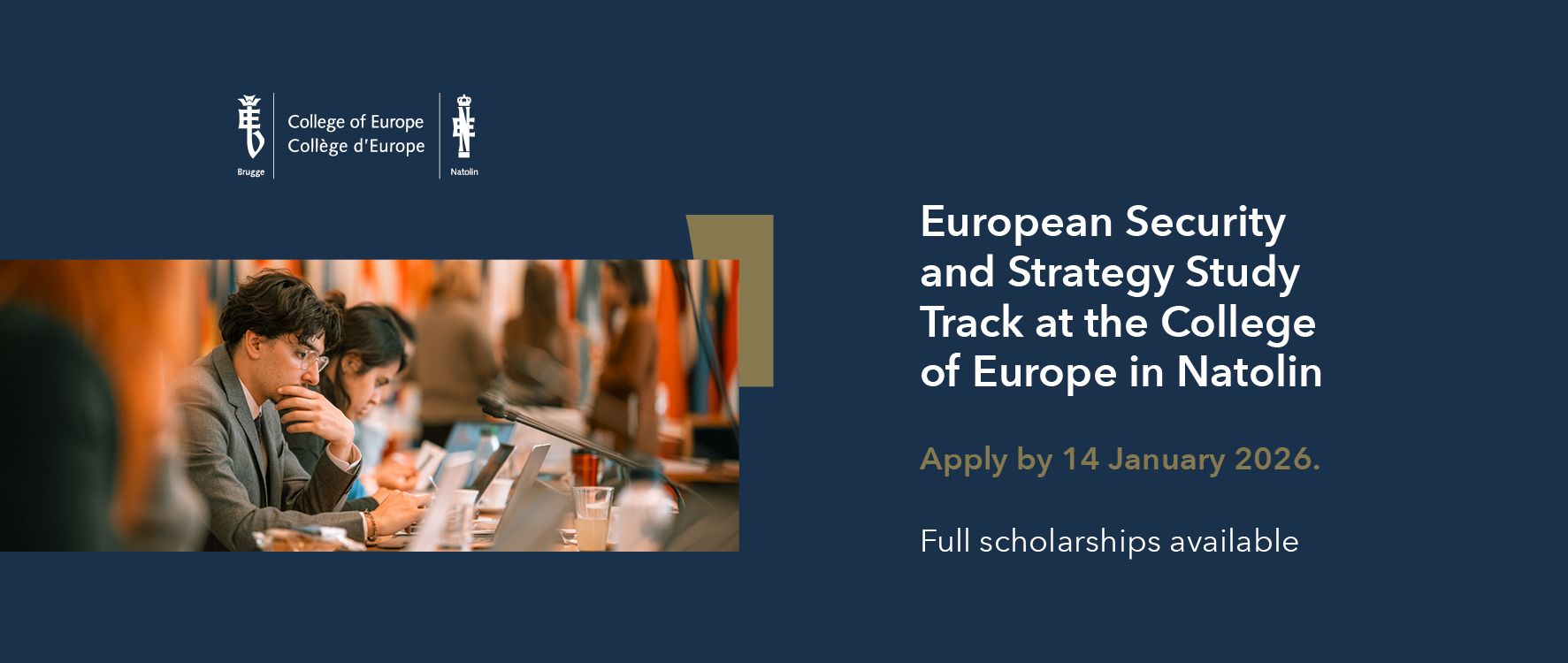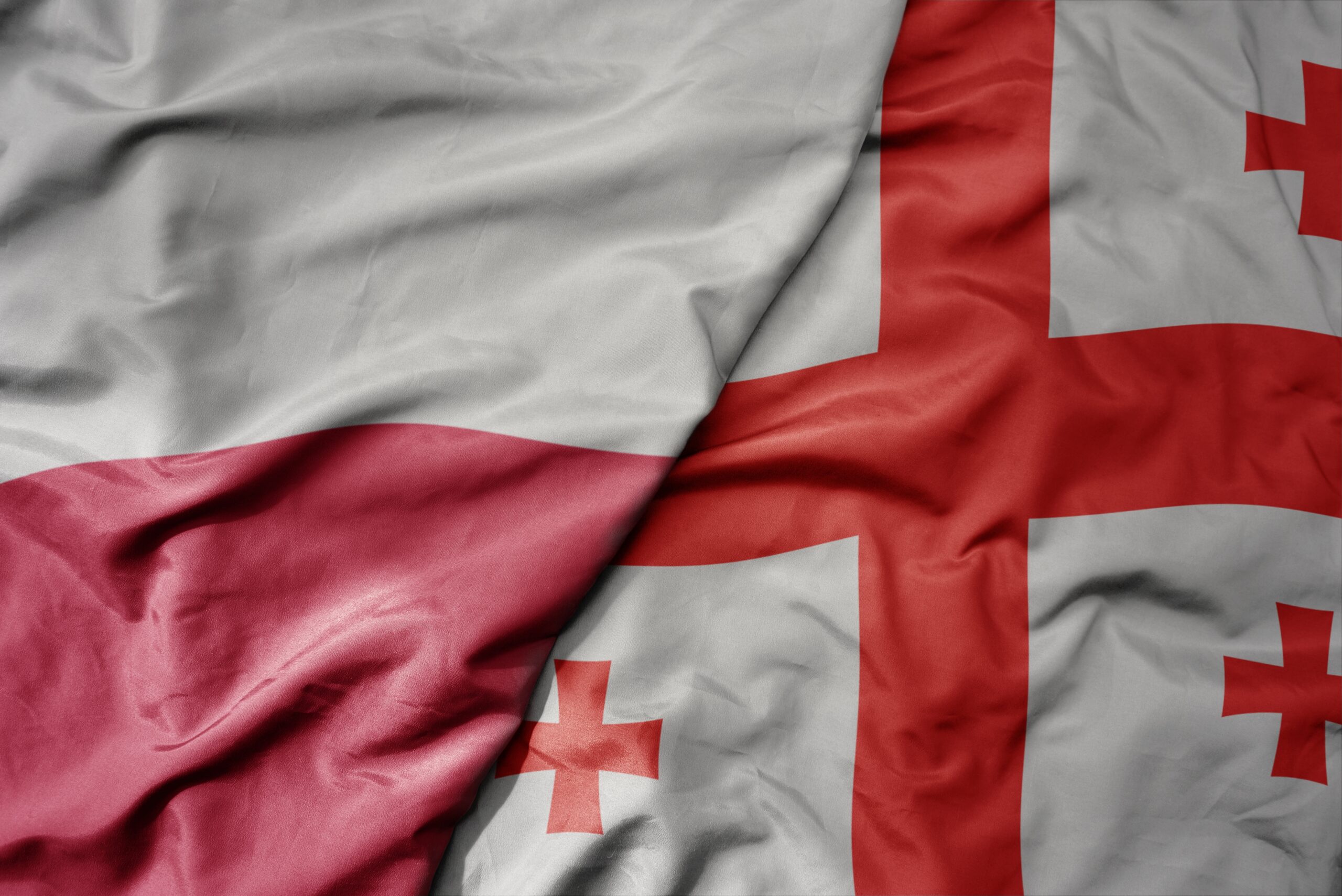In partnership with
DEAR READER,
We’re back from the European Editors Forum 2025 in Katowice. This was the very first edition of the event, organised by us here at New Eastern Europe! Huge thanks to everyone who joined the discussions on the challenges facing independent media across the region and the continent. Big shoutout to our friends from Notes from Poland, The Fix Media, The European Correspondent, Green European Journal, Journalism Trust Initiative, Dekoder, Ask Questions Later, and many more who made it such a success. We hope that we will return again next year! 🤞
Lately, we have noticed one question has been driving traffic to our website: “Will Russia attack Europe?” While most of our popular reads were on the war in Ukraine, we’re now seeing growing concern about a wider conflict. So, this week Adam Reichardt digs into the topic.
Enjoy reading this week’s “brief”!
— Giorgi Beroshvili, Editor
TOP STORIES OF THE WEEK
🇱🇹 Lithuania has closed its two border checkpoints with Belarus. This follows repeated incursions by balloons carrying contraband, which officials described as a “hybrid attack” orchestrated by the Minsk regime. Prime Minister Inga Ruginienė said that by closing the Medininkai and Šalčininkai crossings, Lithuania aims to halt the smuggling of balloon-launched cigarettes, which recently disrupted over 140 flights and affected 20,000 passengers. While diplomats and EU citizens will retain limited entry rights, most movement across the border is now suspended, including cargo routes — though transit to Russia’s Kaliningrad exclave will continue under exemptions. The Lithuanian army has begun taking measures to shoot down the balloons, and the government plans to introduce harsher penalties for smuggling and propose new EU sanctions against Belarus.
🇵🇱 Polish MiG-29 fighter jets intercepted a Russian reconnaissance aircraft over the Baltic Sea on Friday. This has marked the third such operation in seven days. Earlier in the week, jets were scrambled Tuesday and Thursday to intercept Il-20 spy planes flying without filed flight plans and with transponders off, though they remained in international airspace. The Friday interception followed continued Russian strikes near Poland’s eastern border. NATO allies including Norway, Spain, Turkey, and Germany have joined these defensive operations. Temporary airport closures occurred during Thursday’s scramble. Polish officials stressed that repeated airspace violations and reconnaissance flights underscore the importance of NATO’s readiness to counter growing Russian threats along the Baltic and across Eastern Europe.
🇺🇸 / 🇷🇴 US to reduce troops in Romania amid shift to Indo-Pacific. Romania’s defence ministry announced that the United States will cut forces on NATO’s eastern flank from 1,700 to around 900–1,000 troops, rotating out a brigade at Mihai Kogălniceanu airbase while keeping levels at Deveselu and Câmpia Turzii unchanged. The Pentagon said the move reflects the Trump administration’s new focus on the Indo-Pacific and is not a withdrawal from NATO or a signal of lessened commitment to Article 5. NATO officials stressed that the US still maintains a strong presence in Europe, larger than pre-2022 levels.
🇺🇦 Ukraine has received additional US-made Patriot batteries from Germany. “We have strengthened the ‘Patriot’ component of our air defense,” Zelensky said, thanking Chancellor Friedrich Merz for the delivery under previously agreed terms. Berlin had pledged two more Patriot systems by the end of 2025 as part of NATO’s effort to bolster Ukraine’s defenses against Moscow’s escalating attacks on energy infrastructure. Germany has already supplied three systems and secured rapid replenishment from US manufacturers under the new PURL (Priority Ukraine Requirements List) programme. Zelensky said further agreements to expand Ukraine’s air shield were underway, calling each new delivery “a step closer to ending the war”.
A MESSAGE FROM THE COLLEGE OF EUROPE
The College of Europe has opened applications for its postgraduate programmes for the 2026/27 academic year. In response to the growing need in Europe for experts in security, the College of Europe in Natolin is proud to announce the new study track within the Advanced MA in European Interdisciplinary Studies: European Security and Strategy.
The new study track deploys Natolin's expertise to equip its students with knowledge necessary to address some of the most pressing contemporary global challenges. The College of Europe in Natolin has three decades of expertise in EU's external relations with a special focus on the EU's neighbourhoods and Natolin's location at the EU's external eastern border and in NATO's North-Eastern flank offers a unique perspective on Central, Eastern and Northern Europe.
Apply by 14 January 2026.
EXPERT OPINION
Is Russia about to challenge NATO?

This autumn has been a whirlwind of conferences and events across Central and Eastern Europe. At nearly every one, the main theme has been Europe’s security, especially in light of Donald Trump’s election and Russia’s ongoing war against Ukraine. Yet, despite countless panels and discussions, there remains no clear consensus on one key question: Is Russia truly ready to challenge NATO, even while still bogged down in Ukraine?
Most experts agree that Vladimir Putin is not abandoning his ambitions there. His sights remain firmly set on capturing all of the Donbas region, at a minimum — and some believe he still hopes to see Kyiv fall. The recent wave of Russian drone and missile attacks against Ukraine’s infrastructure shows no sign of the Kremlin easing its campaign. Meanwhile, the US-led efforts to push for peace negotiations have, unsurprisingly, gone nowhere.
Still, the debate extends beyond Ukraine. Is Putin preparing to open a second front, this time directly against NATO countries? Signs of a widening conflict are visible. Drone incursions into NATO territory, violations of Allied airspace by Russian aircraft, Belarusian balloons floating over Lithuania, and sabotage operations across the continent — all suggest that the “grey zone” conflict is intensifying. For some security experts, this means Russia is already at war with NATO, just not in the traditional sense.
Others, however, caution against alarmism. They argue that while Russia continues to probe and provoke with hybrid tactics, it lacks the capacity to mount a full-scale challenge against NATO. Sanctions have strained Moscow’s economy and weakened its war machine. Opening a new front while trying to hold territory in Ukraine, they argue, would be militarily and financially impossible.
But not everyone is convinced. Writing for the Royal United Services Institute (RUSI), David Roche offers a more sobering assessment. “If Russia were to open another front with Europe,” he argues, “it would seek to avoid a war of attrition like in Ukraine. The war aims would be to reduce Europe to subservience.” According to Roche, such a war would combine kinetic strikes with extensive grey-zone tactics like disinformation, cyberattacks, and sabotage which would be designed to erode public morale rather than conquer territory. Russia’s economy may be struggling, he notes, but it is far from collapse. And as Putin grows more obsessed with reshaping Europe’s security architecture, he may convince himself that Europe’s psychological vulnerability makes such a move worth the risk.
In this scenario, the battlefield would not be defined by tanks rolling into Poland or the Baltics. It would be fought with drones, missiles, and hybrid tactics, aimed at pressuring European societies to back down quickly to avoid destruction and civilian casualties.
That raises two urgent questions.
First, how resilient and prepared are European societies for such a confrontation? There are both encouraging and troubling signs. On the positive side, the NATO Summit in The Hague last June produced a strong commitment: all Allies pledged to spend five per cent of GDP on defence by 2030, a clear indication that Europe is taking its security more seriously. On the negative side, public opinion suggests that societies may not be psychologically ready for war. A Gallup International poll published last year revealed alarmingly low willingness among Europeans to fight for their country. In Italy, 78 per cent said they would not take up arms; in Austria, 62 per cent; and in Germany, 57 per cent. For a Kremlin intent on breaking Europe’s will, that is a strategic advantage.
The second question concerns NATO’s potential response. Last week, when asked how NATO would react if Brussels were hit by a missile, Belgium’s defence minister declared that the Alliance would “flatten Moscow”. It was a bold statement and no doubt heard in the Kremlin. But it also raises doubts about whether NATO could, or would, respond with such speed and ferocity if faced with a real attack.
Of course, all of this remains hypothetical. Yet after attending numerous discussions across Europe, I am convinced that there is not enough urgency in preparing for a potential confrontation. We cannot afford to wait for the war in Ukraine to end, especially when all indications point to a prolonged conflict. Many experts believe the Kremlin will find a way to sustain both fronts, if only to test the West’s resolve.
If policy-makers truly grasp the scale of the threat, they must focus on two priorities:
First, better prepare European societies for worst-case scenarios — through resilience training, public awareness, and civil defence.
Second, to double down on support for Ukraine — not just so it can defend itself, but so it can ultimately force Moscow to abandon this imperial crusade.
Achieving that, however, will require something that remains in short supply across Europe today: political courage.
— Adam Reichardt, Editor in Chief at New Eastern Europe
As a member of New Eastern Europe, you will enjoy unlimited access to premium articles, our full archive, downloadable PDF issues, and our podcast. Choose digital-only or add print delivery, and join a community that values independent, in-depth analysis.
An espresso shot for your brain
The problem with most business news? It’s too long, too boring, and way too complicated.
Morning Brew fixes all three. In five minutes or less, you’ll catch up on the business, finance, and tech stories that actually matter—written with clarity and just enough humor to keep things interesting.
It’s quick. It’s free. And it’s how over 4 million professionals start their day. Signing up takes less than 15 seconds—and if you’d rather stick with dense, jargon-packed business news, you can always unsubscribe.
QUIZ OF THE WEEK
Central and Eastern Europe is packed with cultural gems, but how well do you really know the region’s museum scene?
Oh, and if you’ve been keeping up with our weekly quizzes (we see you 👀), the leaderboard is heating up! B.S. leads with a perfect 9/9, followed by V.M. with 8 points and A.C. close behind with 7. (One correct answer = one point). If you are ready to climb the ranks, go ahead:
Which museum in Poland houses Leonardo da Vinci’s famous painting Lady with an Ermine?
Which museum displays the remains of the oldest humans ever discovered in Europe, found at the Dmanisi archaeological site?
Which country’s capital hosts the Museum of Broken Relationships, dedicated to lost love stories?
OPPORTUNITIES OF THE WEEK
Fresh opportunities you should not miss:
European Solidarity Centre — Solidarity Academy 2025-26 — A project for activists and journalists aged 22–40, exploring contemporary media challenges, human rights, democracy, and social integration. Open to applicants from the EU, Serbia, Georgia, and Ukraine. The programme runs from November 2025 to June 2026 and includes workshops, discussions, and collaborative learning. Deadline: November 6.
Hertie School — PhD Position in International Security — Join the Centre for International Security as a doctoral researcher (start Sept 2026) exploring digital authoritarianism, state repression, and online contentious politics. Ideal for candidates interested in quantitative approaches to studying social movements and digital governance. Deadline: January 31, 2026.
ARTICLES OF THE WEEK
CARTOON OF THE WEEK

Who’s there?
Do you want to see more of Andrzej’s drawings? Check out our dedicated gallery page featuring his cartoons here.








